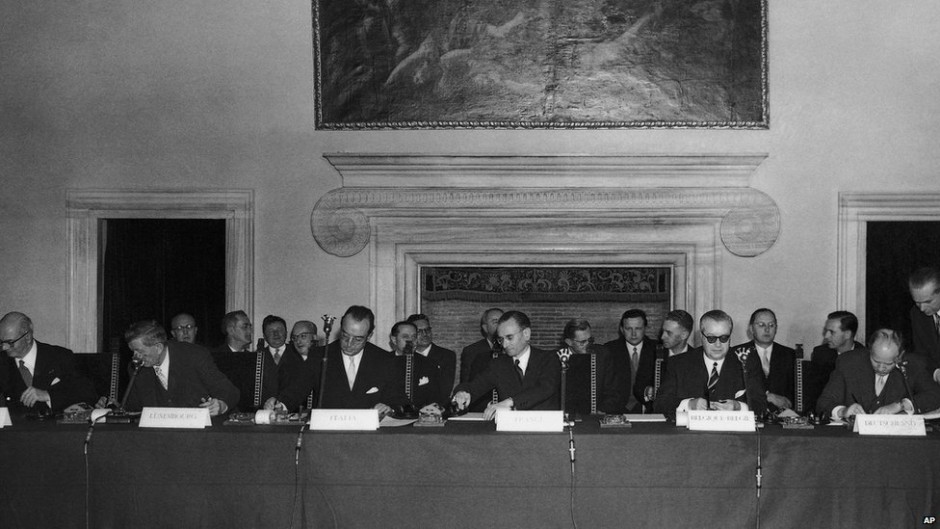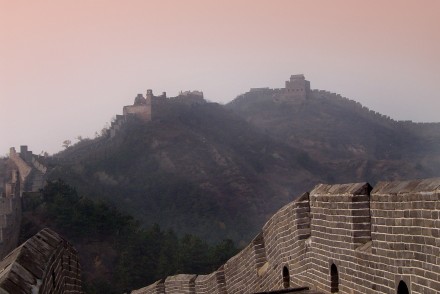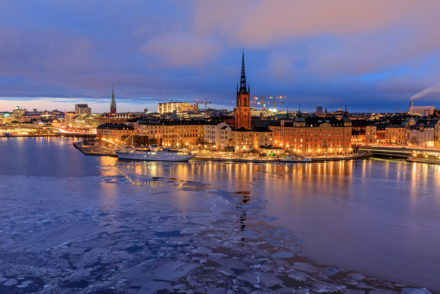HF From the title you’ve given your latest book – The Trouble With Europe – I wonder if you’d been thinking about for a while? Is it because it annoys you?
RB Well, funnily enough, I hadn’t really thought about or written about the EU very much before, and I’d just been one of those middle of the road British people who’d gone along with everything, really, unthinkingly. I was quite prominent in the campaign to keep Britain out of the Euro and felt subsequently that the Euro was a major and unnecessary mistake. When I came to ask more questions about the EU itself, I started to ask myself whether the whole institution was going in the right direction or not.
HF Can anybody look at the EU, even an economist, without politics coming into it?
RB No, there’s clearly a substantial political element to all this, but from my point of view there isn’t a party political element to it. I’m not associated with any particular political party, and I think it’s quite interesting, looking back over the years, to see how things have switched. If you go back to the 1970s, Labour is the party that’s opposed to the EU and the Conservatives are the party that’s very much in favour. And all that’s completely flipped.
HF Where does the distinction between politics and economics stop and start?
RB As an economist, I think you have to approach these kinds of questions from the point of view of the efficiency or otherwise of public institutions, and that’s what a lot of my criticism of the EU is about. It doesn’t strike me as a very efficient political institution – and I mean efficient in the broader sense. I don’t just mean in terms of a bean counting exercise and how many paperclips are used in Brussels, but rather does the EU actually correspond to a natural grouping in Europe? Does it inspire and activate the loyalties of its citizens? Does it cohere as an institution? Now, you might call those political issues. The truth is it’s about both, and there’s so much nonsense spoken about it. That’s one of the reasons I wanted to write the book.
HF One of the problems with the EU that it’s easy for detractors to identify is that not all legislation is appropriate in every country – for instance, trying to ban wolf hunting is a real problem for farmers in the north of Sweden. In the UK, we’ve adopted a few of the dafter directives and then we complain. Isn’t that part of the problem?
RB Gold plating, it’s called. Yes, I think that’s true, but that again is I think a sign that something’s not quite right, because the political cultures are so different. If you try to impose the same approach on everybody, you get very different results in different places.
HF In the book, you describe Turkey’s application for possible membership as a litmus test. You ask if it’s a union of similar peoples or one of geographically close states fulfilling certain measurements. What do you think?
RB I know Turkey reasonably well and I like it. It’s a very important country. My position on Turkey is quite clear, but it is unconventional. I think we need Turkey in a common European association. So the question is, what sort of common European association would we all be comfortable with? The answer is not the EU as it is currently constituted, because it involves free movement of people and includes an aspiration towards even closer political union. It’s bonkers if anyone thinks we can have a close political union with a Muslim nation of 80 or 90 million people.
So I think Turkey provides a litmus test. The question is, what sort of association allows us to have Turkey in it? It’s not the one we’ve got. It’s a much looser one, a framework of free trade, friendship, cooperation, but not movement towards political union.
HF You discuss the pros and cons of a two-tier approach to union.
RB Well, that’s one possibility, isn’t it, that you have a two-tier thing, yes. It’s possible. And you could have Turkey and Britain on the outside and so on and so forth. I think there are big problems with that though, not least ensuring that the countries that are on the periphery have got a fair share in the decision making and don’t get marginalised, dominated by ones on the inside. So I think it’s less than the best solution. But in my view, the idea of full political union is mad. Most people in Europe don’t want it. It might work, for instance, for Germany, Austria, the Netherlands, perhaps Finland. So you could imagine a small group of countries that could forge a reasonably happy political union, but it wouldn’t amount to the current membership of the EU.
HF You explain in the book how the savings-oriented behaviour of the German consumer and the reluctance of the government to inject money into the system is part of the problem. We tend to think Germany got it right when the rest got it wrong – but is it the difference in approach that is part of the current problem in the Eurozone?
RB Well, Germany obviously has been successful, although much less successful than people imagine, certainly in regard to the German consumer. The German consumer is not that much better off now than 12 years ago. I think the key point is that it’s possible for a country like Germany to succeed by having lots of exports and corporate profits and strong public finances by exporting to everybody else, but it isn’t possible for every country to perform that way, and they seem to think it is. They seem to think that everyone can be like the Germans. That’s not possible. The Germans are only able to be like the Germans because other people aren’t like the Germans.
HF Do you think the euro will survive?
RB No.
HF Because it’s impossible to manage all those economies?
RB Well, impossible is a big word, but I think, to use a Marxist term, the internal contradictions are really, in the end, ineluctable. I suppose it’s possible it can be saved but I think the pressures are absolutely enormous and my gut feeling is that it will break.
HF And if you were going to put on when it will break…
RB Couldn’t say. Just couldn’t say.
HF We’ve seen a huge surge in popularity of populist, far-right movements in Europe. In general, these movements tend to be against EU membership. How significant is this trend for the future of the EU?
RB Well, I think this is one of the big concerns. My perspective on this is that the governing elites of Europe have betrayed the European people, and in particular they’ve betrayed the European working class. Their policies have been a complete disaster, economic disaster. They’ve concentrated on the fripperies and the unimportant things, of which monetary union is one example, and they’ve effectively undermined national institutions and national borders with no respect whatsoever for cultures.
It’s unsurprising, I think, that the result of all this is the rise of the far right.
HF Because people want to have a strong national identity?
RB Well, they want to have a national identity, and also, I think, they want to feel that their institutions actually can do something. I think also for full political and econon
HF Do you think that the EU could be a more effective force internationally, a political body capable of exerting any real influence on international politics?
RB Well, I suppose there is a small chance, and there are people in Europe who would like to achieve that. I find it difficult to see that happening, because for a start, to get the thing really going you’d have to get the two major powers, as I say – France and Germany – agreeing on these things. My view is that the modern Germans are pretty un-nationalistic, really. I think they are Europe’s Europeans. I think they genuinely do want to feel European and they want to give the best of their country to Europe and to do what they can to make Europe strong. The problem is France, which doesn’t feel the same way. I mean, the EU was set up in France’s image, and it was very much to enable France to project power, as France was originally the dominant country over Germany.
And I don’t find French people, by and large, wanting to submerge their national identity into some common European mishmash. They’re very worried about the future but, in essence, they want to re-establish and maintain the French model, the French welfare state – everything French. In which case it’s going to be extremely difficult.
HF And where is the euro in all this? What role has it played in the current problems?
RB The Euro I think has played a critical role, in the sense that I’m in no doubt it’s an economic disaster. But the interesting thing is it was unnecessary. The people who put it together and forced it through were, of course, not economists, and they imagined that establishing a common currency would bring European unity. Well, of course, what it’s brought is European penury, and that breeds resentment towards the the whole project of European unity.
If they hadn’t gone ahead with the Euro and instead pursued other forms of political cooperation, I wonder, actually, whether European unity wouldn’t now be more on the cards than in fact it is. The Euro has been an extraordinary diversion.
HF In what sense?
RB Well, it’s caused economic bad performance. Since the beginning of the financial crisis in 2008, the Chinese economy has grown by 70 – seven zero – percent. Over the same period, the Greek economy has contracted by 25%. Unemployment in Spain and Greece is running at about 25% of the workforce; 50% youth unemployment. In France, unemployment is running at 10%, double the German level.
HF you’re not really very optimistic that the EU as a bloc is particularly effective, politically or economically, are you?
RB Yes. You see, I’m not really very bloc-ist. The really striking thing about the world, in my view, is not the success or importance of blocs. It’s the remarkable success of small countries like Singapore, or Hong Kong, or Switzerland. Politicians and bureaucrats seem to think that the route to prosperity is forging an agreement, sitting at a top table, having a negotiation and signing a treaty. And I think the evidence is that it isn’t.
Actually, it’s about getting the fundamentals of business right. Don’t interfere, don’t tax too much, don’t lord it over business. Let business have its head. Have a business-friendly environment, and you’ll end up with prosperity.
HF Just taking Greece as an example then, if Greece hadn’t gone into the Euro and we’d still had something in the financial crisis, how much better do you think things would be?
RB All this is difficult. I think there are particular countries, and Greece might be one of them, that might have fared worse, given the financial crisis, had it not been in the Euro. It’s possible. Small economy, battered around, badly mismanaged. It’s possible it would have fared worse. I find it difficult to believe because its exchange rate is so far out of line with where it ought to be. At the very least, it would have had a much weaker exchange rate, and I think they would have softened the blow.
HF So, if you were writing a referendum question for the British electorate, what would your question be?
RB Oh, I think, it should be should the United Kingdom stay in the European Union? But equally, there’s the whole question of what sort of deal will be on offer afterwards. It might well be that we could get a very good deal from the EU such that we’d continue to have very close trading relationships, or it might be very difficult indeed if the rest of the EU wanted to be vindictive. We need to know what would happen if we leave before we vote.





